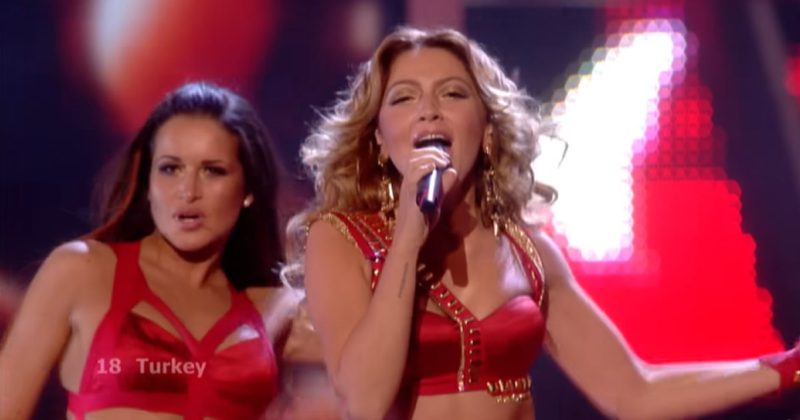
Strategic placement, betting predictions, or pure luck? The fourth article in “The Eurovision Formula” series explores how the running order can impact a contestant’s chances of victory. Article by Ilay Gaist and Noy Yehoyada.
Every year, with the revival of the Eurovision season, thousands of viewers, fans, and professional jurors attempt to crack the code how to win at Eurovision: What is the secret formula that leads a country to first place? Do audiences tend to favor songs performed early in the show, or do they remember those closing the night? In this fourth installment of “The Eurovision Formula” series, we dive deep into the historic data to explore one of the most significant factors: Does a song’s position in the running order actually affect its final score?
Allocation of Running Order: Luck, Choice, or Planning?
Until 2013, performance positions in the Eurovision final were determined randomly by draw. Each participating country drew its position in the performance sequence. However, since 2013, the system has changed — once finalists are confirmed, producers now determine the performance order strategically to create a dynamic, varied flow for the broadcast, balancing different musical styles. Despite producers’ intentions to maintain variety and pacing, many fans and analysts continue to believe that performing later significantly increases a country’s chances of winning.
The Winning Spot: Lucky Number 17
A deep analysis of Eurovision history reveals a curious fact: the performance spot that has led to the most wins is number 17, with seven victories throughout the years — three of them credited to Ireland. Among those who performed as entry number 17 and won are Vicky Leandros (Luxembourg, 1972), Johnny Logan (Ireland, 1980), Linda Martin (Ireland, 1992), Eimear Quinn (Ireland, 1996), Lordi (Finland, 2006), Marija Serifovic (Serbia, 2007), and Loreen (Sweden, 2012).
Song Number 9: The Fortress of France, Austria, and Switzerland
 Close behind is position number 9, yielding six victories — two each for Switzerland and Austria. Switzerland first triumphed in 1956 with Lys Assia, who also became the contest’s first-ever winner. Its second win came from Celine Dion in 1988, who performed ninth. Austria’s victories with song number 9 came in 1966 with Udo Jurgens and more recently in 2025 with JJ.
Close behind is position number 9, yielding six victories — two each for Switzerland and Austria. Switzerland first triumphed in 1956 with Lys Assia, who also became the contest’s first-ever winner. Its second win came from Celine Dion in 1988, who performed ninth. Austria’s victories with song number 9 came in 1966 with Udo Jurgens and more recently in 2025 with JJ.
France also found success from the ninth slot, winning in 1962 with Isabelle Aubret, and nearly repeating the feat in 1991 — tying for first place but losing to Sweden on a tiebreaker.
Conclusions: Running Order Matters, But Isn’t Everything
Analyzing historical data reveals that there is no single “lucky number”. However, there is a clear correlation between performance order and the likelihood of victory. In fact, the final segment of the show has accumulated the majority of wins, with the middle section close behind. According to the statistics, the positions yielding the highest number of victories — adjusted relative to the number of participating countries per edition are:
- performances early in the show: 12 wins.
-
performances in the middle of the show: 27 wins.
-
performances late in the show: 34 wins.
While there is a notable advantage to performing later, many countries have succeeded from mid-show positions, with early performances trailing far behind — especially in the contest’s early years, despite the recent comeback of song number 9 in 2023 and 2025. The conclusion – a later position can provide an edge, but it is far from a guarantee. A strong song and flawless performance can win from almost any spot in the running order — except for one – song number 2, which has become a position producers jokingly reserve for entries with little chance of success.
Can the Eurovision code really be cracked? In the next and final article in this series, we will combine all the data to reveal the definitive answer to the winning formula question.
Eurovision 2026: The 70th Eurovision Song Contest will be held in Austria, following the country’s third historic win with the song “Wasted Love” performed by JJ. This will be the third time the contest is hosted in Austria, after 1967 and 2015.

Email: [email protected]
Phone: +972-50-9441919
Ilay Gaist is a leading Israeli content creator and writer specializing in the Eurovision Song Contest. He is a well-known commentator with extensive expertise in the contest’s history, rules, and dynamics. His passion for Eurovision drives him to deliver rich, professional, and innovative content to his audience.
Ilay holds a bachelor’s degree in Arabic and has a multilingual background. He also engages in cultural research, with a particular focus on global culinary traditions and the evolution of local cuisines around the world.









